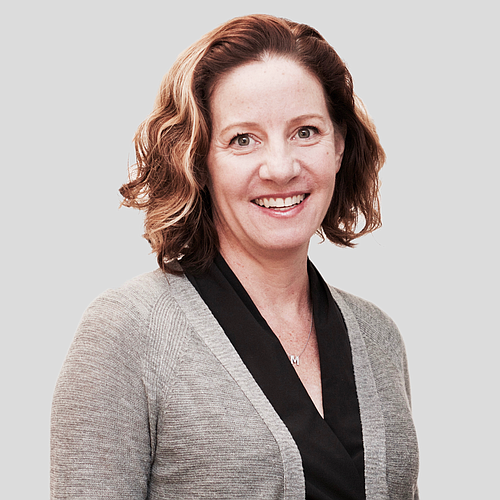
After years of chronic, low-grade back, neck and shoulder pain and ineffective treatments, Resility Health founder and CEO Sarah Davidson realized that it wasn’t caused by a health issue, but by stress.
It wasn’t until she tried biofeedback training that she found relief. It helped her see how her body responded to stressful situations, and helped her learn to physically respond to stress.
Even that became expensive and inconvenient.
In 2016, she realized she could create a convenient alternative.
“You don’t have to go in and be wired up to six sensors to be able to get that biofeedback and figure out what’s happening in your body,” Davidson said.
“It was really just a matter of seeing that there was a gap in the market. I just thought this could be made so much easier if people can just do it on an app,” she said.
Resility Health produces a wearable device that tracks muscle tension using its smartphone app and offers a subscription service that includes the virtual coaching and personalized lessons and exercises.
The wearable is designed to go on the user’s shoulder for a few hours a day. It relays data via Bluetooth to the Resility app, which notifies the user when muscle tension increases past a certain point.
The wearable is $289. A monthly subscription that includes tracking and coaching starts at $49.
Davidson has sold the product to individual buyers, brought the technology to train corporate groups, and recently rolled out a program designed for children and teens.
Davidson said the product does well in the corporate and teenage markets, even though the two seem different.
In a 2018 American Psychological Association survey, teens reported the highest levels of anxiety compared to other age groups.
As Davidson said she knows from working for 11 years at IBM, the corporate world can be stressful.
That made the two groups ideal audiences for the Resility product.
She said there are more than 1,000 active users of the app. Most of the growth has been by word-of-mouth.
She declined to disclose sales.
With more users, Davidson said she and her team are able to refine and update the technology and algorithms used in the wearable and app.
Before founding Resility Health, Davidson held senior positions in marketing at IBM.
Before that, she founded two companies, an import/export company in China and an ecotourism travel agency in the states.
She met Jim Stallings, CEO of PS27 Ventures, when she was vice president of marketing at One Spark, a crowdfunding festival.
She then went to work for Stallings at PS27 helping companies market themselves.
Making the switch back to entrepreneurship wasn’t easy, but after market research, she felt the risk would be worth it to pursue Resility Health.
“I spent some time thinking about the strategy and the need before I jumped into this, just because I think coming back to entrepreneurship after I was in my 20s before – I had no fear. I had to really make sure that it’s something I was ready to commit to for an extended period of time,” Davidson said.
Resility was part of GuideWell Innovation’s Emerging Health Tech Accelerator program this summer, dedicated to early-stage, female-owned health technology businesses.
It’s also a member of the Tampa Bay Wave TechDiversity accelerator, which helps women and minority-owned tech businesses launch their companies.
Resility employs 12 people, she said. Many work remotely, including clinical adviser Ronald Siegel, an assistant professor of psychology at Harvard Medical School, and several business and technology advisers, communications staff and a software engineer.
Davidson said the company is working on integrating the app with Apple Health and the Apple Watch, but the main focus is on refining the product and using data to improve the algorithms.
“There’s been this disruption in almost every industry to make things more convenient, more accessible,” Davidson said.
“We’ll deliver something that gets really great results in a better way for people.”